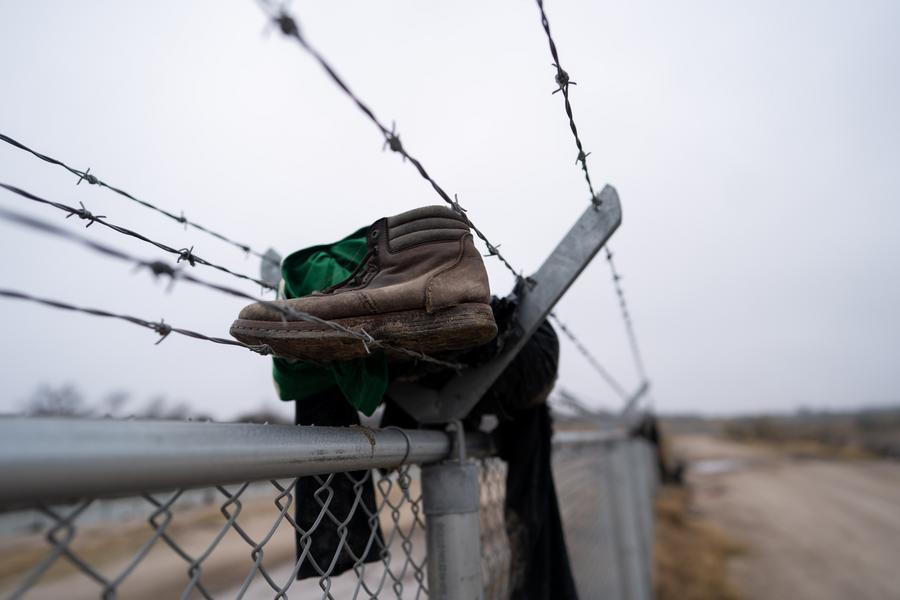Fear leads immigrants to self-deport


On Monday, Sae Joon Park, a 55-year-old Purple Heart veteran who has lived in the United States for 48 years, self-deported to South Korea after being notified by Immigration and Customs Enforcement that he has to leave the US within three weeks or he would be detained and forcibly deported.
Also on Monday, the Supreme Court lifted an order from a federal judge who had placed restrictions on the Trump administration from deporting foreigners to countries where they have no previous ties. The Justices didn't issue any opinion for the ruling.
The Trump administration has forcibly deported or tried to deport people to third countries including Guatemala, Libya and South Sudan, countries that are listed as "unsafe" by the US government.
The fear of being detained and sent to an unfamiliar country has caused some to self-deport.
Park came to the US with his mother when he was seven, and he joined the army and fought in Panama to topple Manuel Noriega's regime in the 1990s. He was shot twice during the war.
To combat his PTSD after the war, Park turned to drugs for relief and violated the law. As a result, he went to jail in 2009 and served 2.5 years in prison. His green card was revoked, but he had been allowed to stay in the US as long as he stayed clear of drugs and checked in every year. He has stayed clear of drugs, raised two children and takes care of his 85-year-old mother.
"This kills me," Park told a local TV station. "I get it. I broke the law and everything, but I think this is a little severe what they're doing to me after I paid my dues, after I did my time for the offense that I did."
Park's treatment has caused outcries online.
"It's totally despicable how this Purple Heart veteran has been treated," one posted on Reddit.
"He fought and bled for us, and this is the government's thanks in return," another said.
Trump has promised to deport immigrants who committed crimes, but ICE data showed that 47 percent of current detainees don't have a criminal record.
Data from TRAC, a data center at Syracuse University, showed that 71.7 percent of ICE detainees have no criminal records.
There are 59,000 detainees in ICE facilities across the country, 40 percent over the capacity of 41,500 beds that Congress last allocated for the agency.
Videos of aggressive raids by ICE agents, not distinguishing between those who committed crimes and those who didn't, have been circulating on social media.
One of the videos showed ICE agents chasing and pinning down Narciso Barranco when he was cutting the grass for an IHOP restaurant in Santa Ana, California. A video recording shows one of the agents repeatedly beating Barranco on the head.
The incident occurred last Saturday. ICE accused Barranco of attacking the agent with a lawn tool, but his son Alejandro Barranco, a Marine veteran, said his father panicked when confronted by men in masks holding guns and was running away from them with the tool in his hands.
A GoFundMe account has been set up to raise money to get Barranco back from ICE detention through legal procedures. So far more than $200,000 has been donated.
"What is happening in our country is heartbreaking. I am so sorry your family is suffering. We stand with you," donor Audrey Kelly wrote.
"Your family represents the true spirit of patriotism and the American Dream. A hard-working family that raised three boys to become US Marines is a powerful testament to their love for this country," donor Will Cabistan wrote. "I hope your family receives the justice and recognition you so clearly deserve from our government."
The fear has driven some immigrants with no criminal record to self-deport. Regina Higuera, who had lived in the US for 36 years, left her home, her children and grandchildren and went back to Mexico in early June.
Her daughter Julie Ear documented her leaving the US and posted it on TikTok.
Ear told CBS that her mother left out of fear and a desire to be in control of her life.
"She didn't like the uncertainty of somebody coming into her house or her job, or being pulled over, and just telling her, 'Oh, now you're in Mexico,'" Ear said.
According to Ear, Higuera had been paying taxes every year without getting any benefits. "She's not going to get a pension. She doesn't have a 401(k). She never got food stamps. She didn't get welfare," she said. "People want to come here to work. And, you know, it's not illegal to want to work."

































